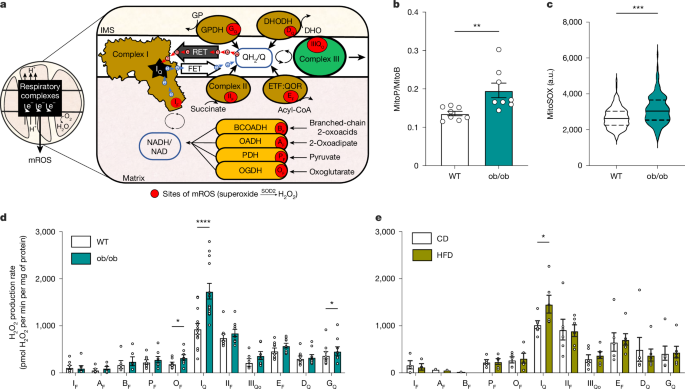
"In obesity, an impairment in hepatic CoQ synthesis leads to an increased CoQH2 to CoQ ratio, driving excessive mitochondrial reactive oxygen species production through reverse electron transport."
"The study identifies a selective mechanism for pathological mitochondrial reactive oxygen species production in obesity that could be targeted to protect metabolic health and improve disease states."
The article discusses the role of mitochondrial reactive oxygen species (mROS) in obesity-related diseases, highlighting an impairment in hepatic coenzyme Q (CoQ) synthesis. This impairment raises the CoQH2/CoQ ratio, which drives excessive mROS through reverse electron transport in complex I. Using various genetic and pharmacological models, the research demonstrates the importance of this mechanism for metabolic health. Moreover, in patients with steatosis, the suppression of the CoQ biosynthetic program correlates with disease severity, emphasizing a targeted approach for addressing metabolic dysfunction in obesity.
Read at Nature
Unable to calculate read time
Collection
[
|
...
]